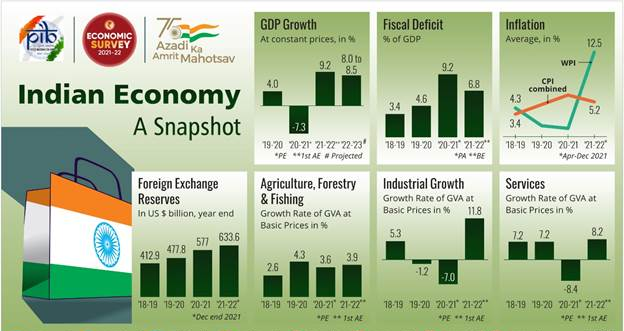The budget is a crucial aspect of a country's economic policy. It outlines the government's revenue and expenditure for a fiscal year and serves as a tool to achieve its economic and social objectives. In India, the budget is presented annually by the finance minister in Parliament and is closely watched by various stakeholders, including businesses, investors, and the general public.
The impact of the budget on the Indian economy can be significant, as it can influence various macroeconomic variables such as inflation, growth, employment, and trade. In this essay, we will discuss the impact of the budget on the Indian economy and how it affects various sectors and stakeholders.
One of the primary goals of the budget is to boost economic growth and development. The government can achieve this by increasing public expenditure on infrastructure, education, healthcare, and other sectors that drive growth. For example, the government can allocate funds for the construction of roads, bridges, airports, and other infrastructure projects, which can create employment and stimulate economic activity. Similarly, increasing expenditure on education and healthcare can lead to improvements in the quality of human capital, which can boost productivity and economic growth in the long run.
The budget can also impact inflation, which is the general increase in prices of goods and services. The government can use various fiscal and monetary tools to control inflation. For instance, it can reduce expenditure and increase taxes to reduce demand and curb inflation. On the other hand, it can increase expenditure and reduce taxes to stimulate demand and boost economic growth. The government's stance on inflation is crucial as it can affect the purchasing power of households and businesses.
The budget can also have an impact on employment, as it can influence the demand for labor. For instance, if the government increases expenditure on infrastructure and other sectors, it can create more jobs and reduce unemployment. On the other hand, if the government reduces expenditure, it can lead to job cuts and increase unemployment. The budget can also impact employment indirectly by affecting the overall economic environment. For example, if the budget boosts economic growth, it can create more job opportunities and reduce unemployment.
The budget can also influence the trade and external sector of the economy. For instance, the government can use the budget to promote exports and reduce imports by providing incentives to exporters and imposing tariffs on imports. This can help reduce the trade deficit and improve the balance of payments. Similarly, the government can use the budget to promote foreign investment by offering tax breaks and other incentives to foreign investors. This can help attract capital and technology, which can boost economic growth and development.
In conclusion, the budget has a significant impact on the Indian economy, as it can influence various macroeconomic variables such as growth, inflation, employment, and trade. It can also affect various sectors and stakeholders, including businesses, investors, and the general public. Therefore, it is crucial that the budget is formulated carefully to achieve the government's economic and social objectives and foster sustainable economic growth and development.







